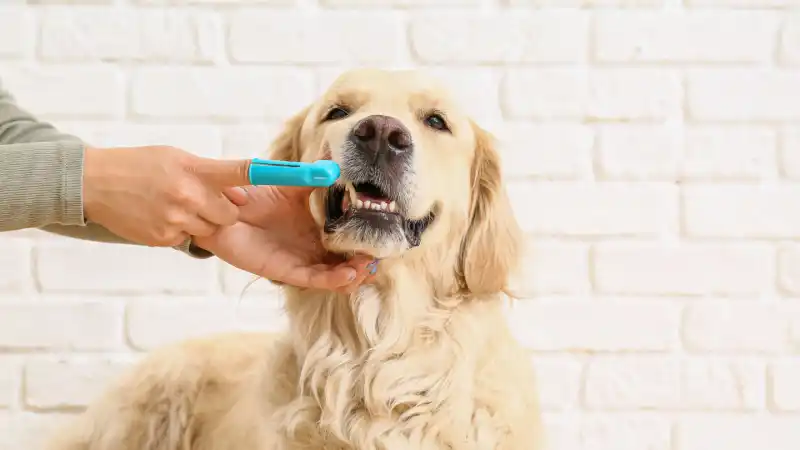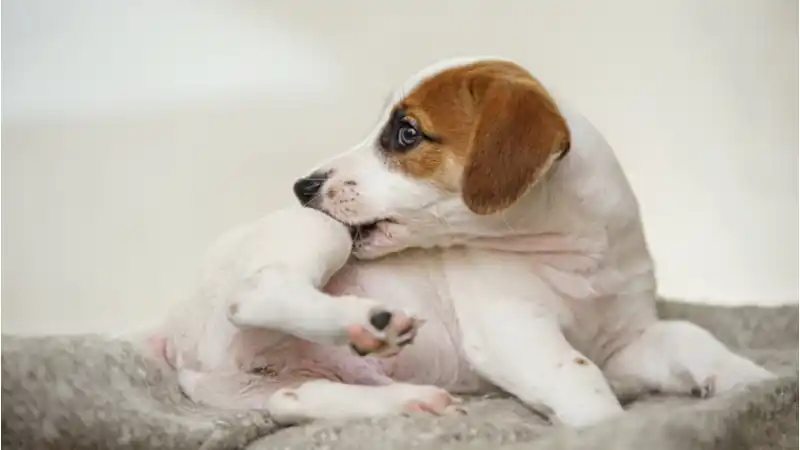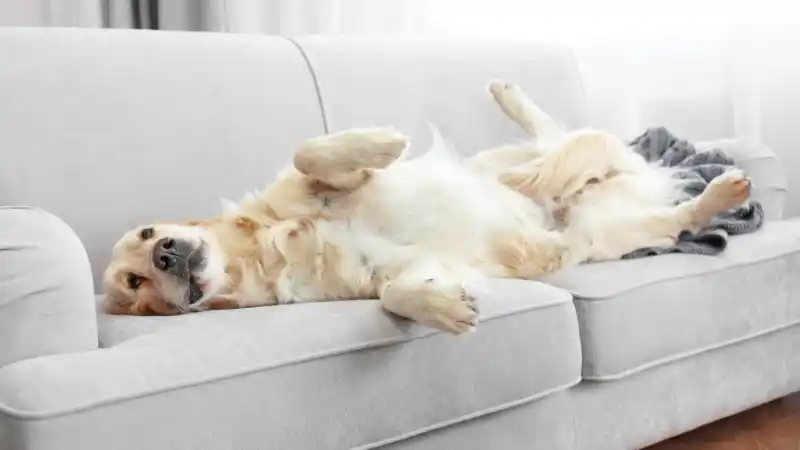How to Stop Dog Farts
Is your dog farting a lot? How much is too much? Read about the causes of this condition, how to stop dog farting and get relief for your gassy dog!
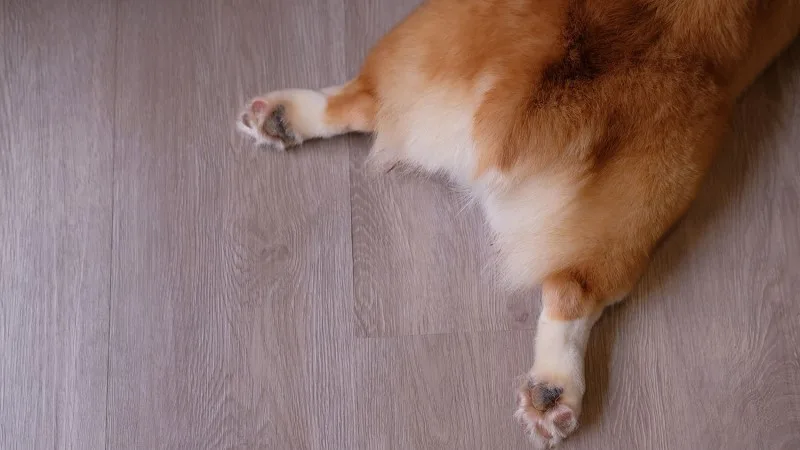
If you own a dog, the odds are pretty good you’ve experienced a dog fart at one time or another that caused you to flee the room. While a little gas here or there is normal (and often funny), if your dog seems to be increasingly gassy, you should have them checked out by your veterinarian.
In the meantime, let's take a look at what causes a gassy canine companion in the first place. Having a little gas is certainly nothing to be concerned about, but if your dog is experiencing something else, like poor digestion due to an illness, there may be cause for concern.
Why Is My Dog So Gassy?
There are many different reasons for dog flatulence. So, if you've recently asked yourself, "Why does my dog keep farting?", these are some of the most common causes of canine gassiness:
Excessive Swallowing of Air (Aerophagia)
Dogs who are nervous eaters or are overly eager to consume their food may gulp down excess air during meals. This extra air must be emitted from your dog’s body in either a burp or fart. Excessive swallowing is especially common among younger dogs, so if you're dealing with more puppy farts than the average dog owner, check into how your pup is breathing while they eat. If they’re breathing abnormally, research home remedies for getting your dog to slow down while eating.
Dietary Indiscretion
If your dog can’t stop themselves from eating things they shouldn’t, you may pay the price by having to endure their unpleasant stink. Dogs who scavenge in trash cans, eat rodents, or “help” clean up your cat’s food or litter may suffer from excess gas, as these things aren’t part of a normal canine diet. The quickest dog flatulence remedy in this case is to take away their access to these "doggie don'ts".
Food Sensitivities
Feeding healthy table scraps can be a great way to treat your dog; however, some dogs have more sensitive stomachs and won’t be able to handle “people” food. Dry dog food may also contain ingredients that aren’t as easily digested by dogs, such as soybeans, peas, dairy products, and fruit. If you have any concerns about food sensitivities, consult your veterinarian for guidance regarding food options for your dog.
Sudden Dietary Changes
If you choose to feed your dog or puppy a new brand or formula of food, be sure to make the transition slowly. The AKC recommends taking a week to transition your dog by mixing a greater percentage of old food than new food for the first two or three days. In the next two days, you should feed equal portions of new and old food. Then, finish the week with three-quarters of the new food and one-quarter of the old food. At the end of a week, your dog’s stomach should be capable of handling the new food entirely.
Infection/Disease/Disorder of the Gastrointestinal Tract
There are several health concerns that can cause a sudden increase in flatulence in your dog.
Some common culprits include:
Inflammatory Bowel Disease
Parvovirus
Enteritis
Intestinal Parasites
Exocrine Pancreatic Insufficiency
What Can I Do to Reduce My Dog’s Gas?
If your pup is gassier than usual and they appear to be uncomfortable or ill, you should consult with your veterinarian. Your vet can conduct a physical exam, along with blood work and fecal tests, to help diagnose the cause of your pup’s gastrointestinal upset. If your vet determines that the issue is not an illness or disorder, there are a few different options to help reduce your dog’s excessive gas.
Increase Exercise
Dogs who exercise more are believed to have less gas than those who lead a sedentary lifestyle. If your dog has bad gas that leaves you uncomfortable while cuddling them on the couch, heading outside will give them a chance to relieve themselves of gas without bothering anyone!
Change Your Dog's Diet
Your dog may be consuming ingredients that are hard for their stomach and small intestine to digest. Consider switching your dog over to a highly digestible diet that is low in fiber and fat content. After consulting your veterinarian for the right food and ingredients for your dog, you may also decide to avoid feeding food with sulfur-rich ingredients, such as soybeans or eggs.
Slow Down Eating
Dogs who gulp their food and water often take in too much air. Reduce the toots by encouraging your dog to eat more slowly with slow-feeder bowls, food puzzles, or by hand-feeding.
Choose Probiotics
Speak to your veterinarian about adding probiotics to your dog’s diet to help get their gut back on track. There are billions of microbes in your dog’s gastrointestinal system that aid in digestion and strengthen their immune system. Feeding probiotics helps to boost the beneficial bacteria in your dog’s gut. Probiotics can come in capsules, chews, or by feeding certain types of yogurts. Some probiotic products are specifically made for canines, so look for them where you shop for their food or toys.
Help Your Dog Feel and Smell Great
Determining the cause of your dog’s farts, be it food allergies, eating too fast, a need for a lifestyle change, or an aversion to milk products in their diet, will ultimately lead to a healthier environment for everyone in your home. Your dog will feel more comfortable when they experience healthier digestion, and your family won’t have to worry about a pungent pooch releasing smells that chase everyone from the room!
Take some of the stress out of pet ownership with Accident & Illness Coverage from AKC Pet Insurance (underwritten by Independence American Insurance Company). Our pet insurance plans are designed to be there when you need them, allowing you to focus more on the health of your pet and less on costly veterinary bills. Click here for a quote today!
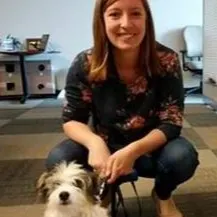
Mary comes to AKC Pet Insurance with an extensive background in animal care. As a lifelong animal lover, she has a passion for promoting pet health and wellness. Mary lives in Kentucky with her orange kitty, "Cat" and her dog, " Wubbi".
READ MORE ARTICLES